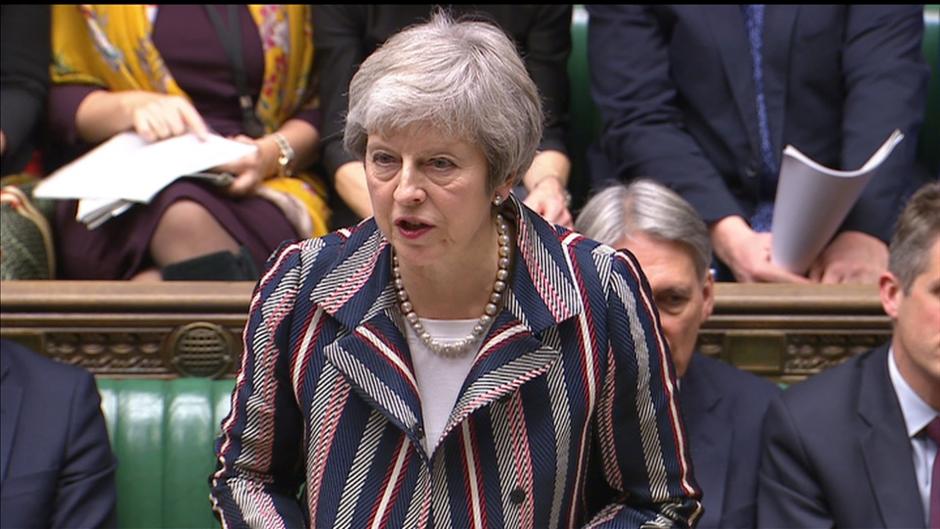Britain will head into unknown if Brexit deal is rejected: May

LONDON (Reuters) - Prime Minister Theresa May warned on Monday that Britain would be thrust into the unknown if parliament rejects the Brexit deal she has negotiated with the European Union, as members of parliament from all sides lined up to criticise the agreement.
Under the deal secured with EU leaders on Sunday, Britain will leave the bloc in March with continued close trade ties, but the odds now look stacked against May getting it approved by a divided British parliament.
As May tried to win over her critics, MPs from both her own Conservatives and opposition parties attacked the deal, warning that parliament would not support it, and urging her to set out an alternative plan.
“There is not a better deal available,” May told the House of Commons. “We can back this deal, deliver on the vote of the referendum and move on to building a brighter future .. or this House can choose to reject this deal and go back to square one.”
“No-one knows what would happen if this deal doesn’t pass. It would open the door to more division and more uncertainty, with all the risks that will entail.”
Parliament will vote on the deal on Dec. 11 after a total of five days of debate, May’s office said.
May has warned MPs that if they reject it, Britain could face leaving the EU without a deal - something businesses say would hurt the world’s fifth largest economy.
The EU has also been clear that there is very little appetite to reopen the Brexit negotiations if parliament votes it down.
Her plan faces opposition from both eurosceptics and europhiles among her party’s 314 MPs and around 313 MPs from opposition parties. The 10 MPs of the Democratic Unionist Party, the Northern Irish group that props up May’s minority government, said at the weekend they will vote against the deal.
May needs to win a simple majority in parliament - 320 votes if all active MPs turn out and vote - but former whips, who have long studied parliamentary arithmetic, say the prime minister may end up needing only 305 votes if illnesses and abstentions are accounted for.







